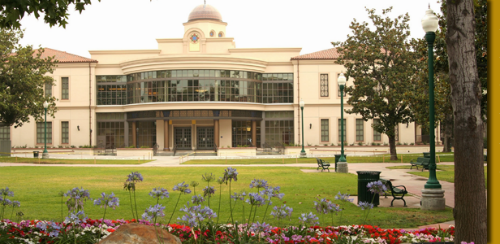I’m sitting in the Humanities and Social Sciences Faculty Office at Fullerton College, typing up an e-mail to the curator of the Fullerton Museum Center regarding their upcoming exhibit entitled Citrus: California’s Golden Dream. I’m writing to make sure the exhibit represents the treatment of the citrus workers. I attach some of my research regarding segregation, housing discrimination, and illegal deportations.
Anyway, as I’m typing this up, I overhear two full-time faculty members discussing the Occupy Wall Street movement. They seem to have adopted the Orange County Register view that the protestors are demanding some sort of re-distribution of wealth.
“They aren’t really saying anything constructive,” one faculty member says, and the other agrees.
“Excuse me,” I interject, “They are not really demanding wealth re-distribution. They are protesting the unfair relationship between big business and government, like how the tax code favors the rich, and how corporations have unfair influence over legislators. If anything, they are arguing for tax and campaign finance reform.”
“Well, that’s not what I’m hearing,” one faculty member says. I suspect he’s getting his information from the Register, or any mainstream media outlet, and not the actual protestors.
“That’s what it’s about,” I say, “Wealth re-distribution is an easily dismissable misnomer for tax and campaign finance reform.”
“I think we need smaller government,” he says out of basically nowhere, again echoing popular mainstream sentiment.
“But you are a government employee,” I say, “What do you propose we cut, government-wise?”
At this point, another full-time faculty member emerges from his book-filled office.
“I think public education should be privatized,” he says.
“But you work at a public communitiy college,” I offer.
“If we privatize education, it would be much more efficient. It should be run like a business,” he says, ignoring my point.
“But education is not really a business,” I say, “It’s a public service. Look what happens when we privatize health care. We now have a situation where 46 million Americans cannot afford it.”
“If students had to pay more, maybe they would think twice about ditching my class,” he says.
“But the Community College system exists so that lower-income students can afford college. Do you want to deny them that?”
“Well, no,” he says, “But public education is inefficient.”
“I’ll agree with you there,” I say, “The CSU Chancellor, Charles Reed, has gotten a 71% pay increase over the past twelve years, while adjunct faculty like me have only gotten a 7% increase, and student fees have gone up 283%. How does that make sense?”
“Well, you need those high salaries to attract the right people,” he says, “He has a hard job.”
“Is his job really that hard? Is it harder than yours or mine? I have no idea what he does, job-wise, except give himself raises and increase student costs.”
“He has a lot of meetings,” the faculty member says, and retreats to his office.
“Alrighty,” I say, and return to my e-mail, my heart racing a little. I just debated three full-time faculty members and, maybe, won.
Before leaving, I poke my head in these guys’ office, introduce myself, shake their hands, and say, “Nice talkin’ to you.”
I reflect on my little debate. It’s an argument I would imagine having with a Chamber of Commerce employee, not full-time instructors at a Community College. I do not understand. The only explanation I can imagine for their self-contradictory views is that they live in an insulated Orange County bubble, and maybe do not have facebook accounts.

